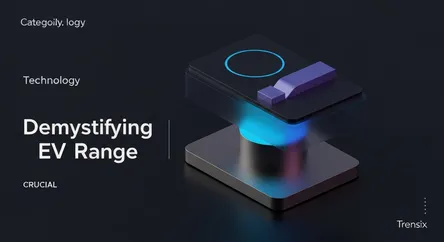Technology
Demystifying EV Range

Ever wonder how far an electric car can go on one charge? We explain EV range, why it's a hot topic, and how it impacts your driving experience.
What is it?
EV range is the estimated distance an electric vehicle (EV) can travel on a single, full charge of its battery pack. Measured in miles or kilometers, it's the electric equivalent of a gasoline car's fuel efficiency (MPG). Official range figures are determined by standardized testing cycles, such as the EPA (Environmental Protection Agency) in the U.S. or the WLTP (Worldwide Harmonised Light Vehicle Test Procedure) in Europe. However, real-world range can vary based on several factors.
Why is it trending?
As the world shifts towards electric mobility, range has become the most critical metric for consumers and manufacturers. Automakers are in a competitive race to develop batteries that offer longer ranges to make EVs more practical for everyday use and long-distance travel. Breakthroughs in battery technology and vehicle efficiency regularly make headlines, pushing the boundaries of what's possible and driving the conversation around the future of transportation.
How does it affect people?
A vehicle's range is a major factor in the purchasing decision and directly influences the owner's experience. A primary concern for potential buyers is "range anxiety"—the fear of the battery running out before reaching a charging station. Real-world range is impacted by driving habits, speed, terrain, and even outside temperature, with colder weather often reducing battery efficiency. As EV ranges increase and charging infrastructure expands, this anxiety is diminishing, making EVs a more viable option for a wider audience.